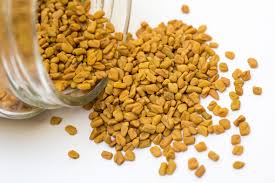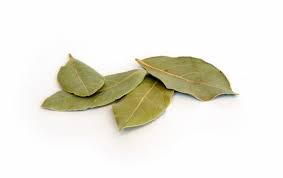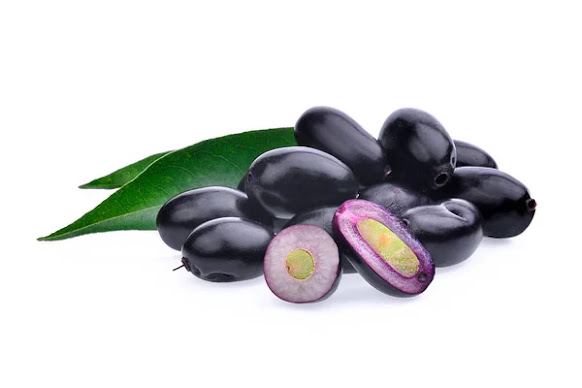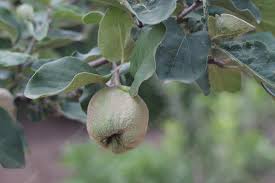Overview
Friends, when blood glucose, commonly referred to as blood sugar, is excessively high, it can lead to diabetes. Your main source of energy, blood glucose, is obtained from the food you eat.
The pancreas produces the hormone insulin, which facilitates the uptake of glucose from food into your cells for use as fuel.
If your body produces little to no insulin or uses it poorly, glucose doesn't get to your cells and remains in your blood.
Over the time, health issues might result from having too much glucose in the blood.
The Most Common Types of Diabetes are:
The most common types of Diabetes are Type 1 diabetes, Type 2 diabetes, and Gestational diabetes
Type 1- diabetes
The inability of the body to produce insulin is a symptom of type 1 diabetes. Insulin-producing cells in the pancreas are attacked and destroyed by the immune system.
Even though it can manifest at any age, type 1 diabetes is typically diagnosed in children and young people. Insulin is required for survival in people with type 1 diabetes every day.
Type 2 Diabetes
If you have type 2 diabetes, also called diabetes mellitus, you may have poor insulin production or usage.
Type 2 diabetes can strike at any age, even in infancy. However, those in their middle years and older are most likely to develop this kind of diabetes. The most prevalent kind of diabetes is type 2.
Gestational diabetes
Some women experience the onset of gestational diabetes during pregnancy. After the baby is born, this type of diabetes typically disappears.
However, if you had gestational diabetes, your risk of getting type 2 diabetes in the future is higher. Type 2 diabetes can occasionally be detected during pregnancy.
Do You Know Who Has A Higher Risk of Type 2 diabetes?
People who are overweight, older than 45, or have a family history of diabetes, are more likely to acquire type 2 diabetes.
Your likelihood of getting type 2 diabetes is also influenced by your level of physical inactivity, race, and several medical conditions like high blood pressure.
If you have prediabetes or had gestational diabetes while you were pregnant, you are also more likely to acquire type 2 diabetes.
These are the Health problems associated with Diabetes:
Diabetes is the head of a group of health problems. People who suffer from Diabetes are more likely to have many other problems like
- stroke
- heart disease
- kidney disease
- eye problems
- dental problems
- nervous problems
- foot problems
Lifestyle And Diet Changes You Need To Follow To Keep Away From Diabetes:
Please see the above video for reference
- Eat Bitter Ground (called Karela in India), Lady Fingers, and Beans
- Also eat Broccoli, Spinach, and Curry Leaves
- And eat fruits like Apples, Papaya, Guava, Orange and Pears
- Avoid fruits like Mangoes, Bananas, and Grapes
- Use Canola Oil, Mustard Oil, and Pure Ghee in your meals
- Avoid Vegetable Oil, Refined Oil, and Sugar in your meals
- Eat Pulses, Jaggery, and Nuts
- Avoid Alcohol, Pork, and Beef
- Eat moderately Fish, Chicken (avoid leg pieces), and Mutton (avoid boneless)
- Workout for 30 minutes 5 days a week
Home Remedy For Diabetes:
Please see the above video for reference:
- Take 100 gms of Fenugreek (called Methidana in India)
- Also take 100 gms of Bay Leaves (called Tejpatta in India)
- Take 150 gms of Java Plum Seeds (called Jamun in India)
- And take 250 gms of Bael Leaves (called Bael Patta in India)
- Grind the above ingredients and mix them properly. Store the mixture in a glass jar
- Take 1 spoon of this mixture with warm water, 1 hour before each meal
Fenugreek is good for Diabetes:
 |
| Fenugreek seeds help those with diabetes lower their blood glucose |
Image: Unsplash
Fenugreek seeds help those with diabetes lower their blood glucose, according to research conducted over the previous 20 years.
Its effectiveness as an anti-diabetic was demonstrated by better glucose tolerance in human volunteers and a decrease in fasting blood glucose levels.
Bay Leaves are good for Diabetes:
 |
| Eating bay leaves enhances insulin and glucose metabolism. |
Image: Unsplash
Due to the Bay leaves' abundance in phytochemicals and essential oils, they have a hypoglycaemic impact on diabetics.
It has been discovered that eating bay leaves enhances insulin and glucose metabolism. A polyphenol, which is the active ingredient in bay leaves, aids in regulating blood sugar levels.
Java Plum seeds are good for diabetes:
 |
| Java Plum (Indian name Jamun), is renowned for preventing diabetes. |
Image: Depopsitephotos
Java Plum (Indian name Jamun), is renowned for preventing diabetes. Jamun seeds are equally as beneficial for managing diabetes and other health issues.
An evergreen tropical tree family called Myrtaceae which is indigenous to Bangladesh, India, and Indonesia produces Jamun fruit.
Jambosine and jamboline, two substances that inhibit the release of sugar in the blood, are found in Jamun seeds. Jamun seeds also aid in the generation of more insulin, which is beneficial for those who have diabetes.
Bael is good for Diabetes:
 |
Bael's low glycemic index helps to keep blood sugar levels stable.
|
Image: Freepik
According to reports, the active ingredient "Feronia gum" found in the bark and branches of the bael tree has beneficial effects for managing diabetes.
It controls how much insulin is released from cells into the bloodstream and bael's low glycemic index helps to keep blood sugar levels stable.
Our Other Must-Read Articles:
Some other Tips and Home Remedies for Diabetes:
Exercise is a Must for People Suffering From Diabetes
One of the main reasons behind type II diabetes is being overweight. Any kind of physical activity, be it yoga, Zumba, aerobics, gymming, or playing sports can significantly improve blood sugar levels by maintaining your weight.
Doing some heavy exercise like Dumbbells or Bench presses may have more effect on Diabetes. Not only this, walking every day can help to reduce the blood sugar level tremendously.
Smoking Increases The Risk of Diabetes
Tobacco use has been related to a variety of major health problems. Smoking and passive smoking have also been linked to type 2 diabetes in studies.
Smoking increases the risk of diabetes by 44% while smoking more than 20 cigarettes per day increases the risk by 61%.
Take Cinnamon:
A bioactive component found in cinnamon has the potential to combat and prevent diabetes. It is well known that cinnamon increases insulin action, which lowers blood sugar levels.
Like too much of anything is harmful, too much cinnamon can raise the risk of liver damage since it contains a substance called coumarin.
It is safer to have genuine cinnamon rather than Cassia cinnamon, which is the type sold in stores.
Cinnamon consumption -
Take it once daily by mixing half or one teaspoon of ground cinnamon with warm water.
Water and raw cinnamon are brought to a boil. Have it every day after letting it cool for 30 minutes.
Take Vitamin C:
Diabetes can benefit from vitamin C as well as skin. Recent research has demonstrated that taking 600 mg of vitamin C daily can considerably lower blood sugar levels.
Chronic diabetics should eat vitamin C-rich meals every day. Amla, orange, tomato, and blueberry are a few examples of foods high in vitamin C.
Eat Aloe Vera:
In Indian homes, aloe vera is frequently found. Despite having a bitter flavor, adding buttermilk improves the flavor.
Aloe vera is frequently used in cosmetic products, but because it has anti-inflammatory characteristics, it can also treat wounds.
It is claimed that it regulates blood sugar levels because of its anti-inflammatory qualities.
Eat Java Plum or Jamun:
It has been demonstrated that Jamun and its leaves are effective in decreasing blood sugar levels. It is stated that consuming 100 grams of Jamun per day will significantly enhance your blood sugar levels.
People Suffering From Diabetes Should Avoid Theses:
1. Refined sugar
We all know that sugar is terrible for diabetics until it is in its most natural form. When ingested, refined sugar quickly raises blood sugar levels.
Even natural forms, such as honey, can trigger an abrupt surge in blood sugar levels. If you have diabetes, you should avoid refined sugar at all costs.
2. Whole grains
Gluten-containing grains should be avoided. Gluten is linked to diabetes because it causes a leaky gut, which leads to inflammation and, ultimately, autoimmune illnesses.
3. Alcohol
Alcohol intake has been linked to diabetes. Alcohol not only harms your liver but also the pancreas, which creates insulin.
Diabetes is connected to high alcohol intake, which is two to three glasses per day. Beer, in particular, should be avoided due to its high glucose content.
5. GMO foods
GMO foods have the potential to cause diabetes as well as liver and kidney problems. Choose products that are labeled GMO-free.
__________________________
Friends, if you liked it, please share it with your friends.
SHARING IS CARING.
Compiled by: Paramjit Singh Rana






Comments
Post a Comment